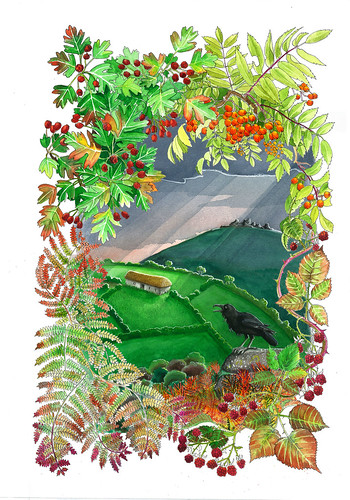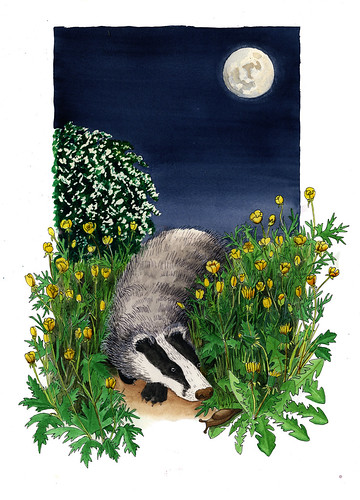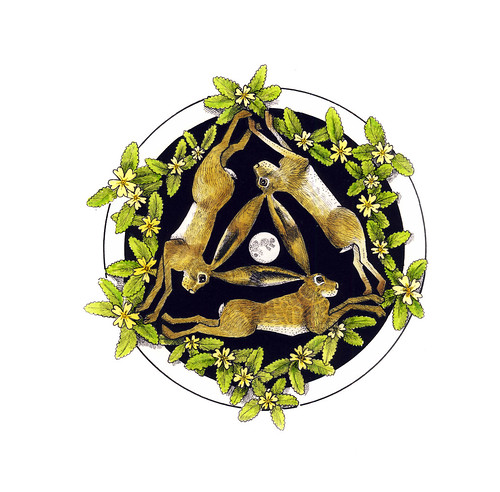Mal and I were down at the Trinity Centre last night, for their
Bridges project short story competition. We'd both entered a story, using noms de plume
...which in my case was Madalin Durrell, which is not quite an anagram of my name. Excitement mounted as the third and second places were announced, and then the fist prize was given to Susana Rimbly... and it took a moment to remember that it was Mal who'd won. Yay!
The stories will all appear on the Trinity website in the fullness of time, but in the meantime, this is my unplaced one, which is probably a bit more of a travelogue than a short story, and is based on
a trip I did with Richard a few years ago.... but so it goes....
Crossing Bridges
I
pulled my fingers across the water’s surface; small whorls eddied in their
wake, and Richard’s cigarette end bobbed and circled as it passed astern.
Deeper down below the calm surface, great gouts of silt rolled up from the secret
deep, sparkling a bright, flecked yellow-brown in the spring sunlight.
“It’s
like we’re paddling across a great huge lava lamp,” I remarked. “Gloop. Gloop. More chocolate?”
“Not
so much paddling, if you don’t mind,” said Richard, whose own paddle lay idly
across the gunwales above his knees. “Maybe if we just sit here the current
will carry us to Chepstow. Yes please.”
Chocolate
is good for expeditions. I broke off two blocks from the big bar in the plastic
box, and passed one forward. The canoe wobbled as Richard half-turned to get it,
and a paddle blade slapped the water. I let the chocolate melt in my mouth and
watched the distant wooded hills slide along, marching silently westward behind
the church tower over there on the Welsh shore at Mathern.
“We
are going at a fair old lick, aren’t we? Don’t want to end up headed for Gloucester though. That
current gets a bit fierce past the Hen and Chickens. Up the Slime Road, yuk.”
I
dabbed with my paddle, and swung the nose back around towards Wales. Richard
lit another cigarette, and exhaled luxuriously. The sun was warm on our shoulders,
and it was good to be just drifting quietly with the flood tide. To the north
and south, the traffic on the two big bridges rumbled relentlessly; the slab-sided
lorryloads of cornflakes for Cardiff, the rolled
steel from Port Talbot bound for Southampton; and
all the little executive BMWs, carrying individual servings of company reps for
the business parks of the M4 corridor. If they were to glance aside from their
Blackberries and look along the estuary, they’d probably not even see us down
here. Busy, busy, busy.
I
squinted to filter out the factories and pylons, pictured the shores as they
would have appeared to the earlier travellers, those dark, not-yet-welsh tribes
in search of pastures new, their flocks hobbled in the bows where the watchman
gazed wonderingly at Twyn Barlwm and the rounded billows of the Gwent hills; or
that long ridge to the south, meandering towards the distant Cotswolds. The two
opposing shores looked so similar; the low water meadows where the brown cattle
grazed, the hawthorn hedges white with blossom, the out-of-sight rhyne from
which a heron ascended on great lazy wingbeats. But they are two different
countries, their differences made possible by the dividing water. War parties
have passed this way; the Romans sailed by on their way from Bristol
and Gloucester,
to fight Caractacus and the Silures. Alfred and his thanes pursued a Danish
horde along that north shore, and slaughtered them in what was now the shadow
of the Severn Bridge. The water keeps enemies apart,
but maybe it also creates the differences that make enemies.
The
canoe wobbled a little as I stowed the box of chocolate back in the space behind
me. Boats don’t come much smaller than this one.
Richard
was gazing down at the eddies in the water. “I wonder how many wrecks we’re
sailing over? Thousands of years’ worth, all covered in mud. Wouldn’t take much
to swallow us up.” He rocked the canoe side to side a little, to demonstrate.
“I
was in Tasmania a few years ago; picking up a
boat in the Darwin
River. There’s a great
huge bridge across it, and upriver there’s an aluminium smelting plant. And one
night a freighter went into the bridge; captain was drunk, most likely; knocked
a great section out of the bridge; the concrete fell on the ship, the ship sank
right away- went down, there and then. And in the dark, the cars were driving
across the bridge and just dropping off into the water. Suddenly no road. Falling.
Bloody deep river. Bloody fast current. Gone.”
You
put a lot of trust in a bridge, when you’re on it. And it only takes one little
wrong step to take you right out of that world of straight lines and
destinations. And it doesn’t even need to be your step that’s the wrong one.
A
shadow passed across the water; a seagull. I shivered and looked again at the
bridge.
“Did
you ever walk across the bridge, Richard?”
“No;
not sure I’d want to. It looks a bit high…”
“I’ve
been over, a couple of times; in the middle, you can feel the bridge bounce
whenever a lorry goes by. And just those railings between you and the drop.
It’s all right when you’re up there. Well, sort of all right. I wake up in the
night sometimes with the horrors, going over what I’ve done. It’s not the doing
things that’s scary, it’s the thinking about it afterwards. But suspension
bridges only work because they’re a bit elastic. Try to be solid and they’d
just crack.”
Why
were we down here in this little canoe? Maybe the bridge is just a bit too easy
for a big arrival. You really know you’ve arrived somewhere when you have to
work at it.
And
sometimes there just isn’t a bridge. And sometimes we have to set out, cross those
uncharted waters, draw the map as we go. But you need to have an idea of where
you’re heading, maybe. At least you need to know when it’s time to go. If you
were looking down from the bridge on that spring day you’d see two men in a canoe.
And now there’s me sitting writing this. I know how that particular voyage
ended. And I know about a bigger voyage that one of them is going to take. But
they don’t know anything about that, yet; and so you don’t know anything about
that either. That’s in their future. Let’s leave them to pick up their paddles
again. They can’t float there all day; the tide’ll be changing before too long.
Off
they go.
Is
there a happy ending? I’ll let you know that they passed safely by the chapel
of St Tecla, at the mouth of the Wye. They’re hoping to get to the pub at
Chepstow in time for a lunchtime pint. You can allow them to succeed if you
like.
Two
men in their canoe.
One
woman writing this.




















